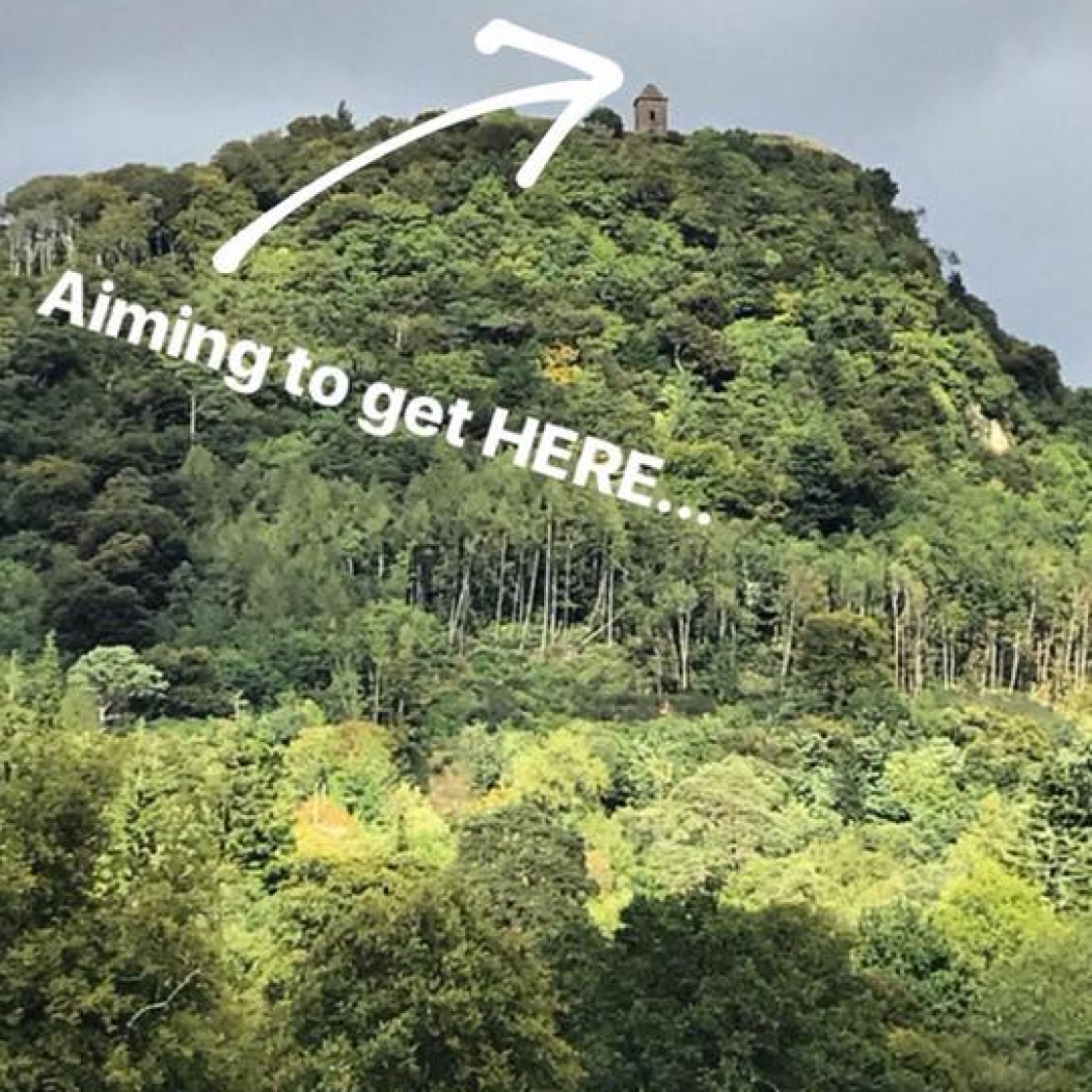Can walking really benefit both your mind and body? Here’s what happened when Stylist’s Kayleigh Dray accidentally stumbled into ‘mindful hiking.’
Mechanics always advise that you take a drive every so often without the radio on, so that you can really listen to the car’s engine and make sure everything is running smoothly.
The same is true of human beings – except, of course, you’re checking in with yourself and how you’re actually feeling.
So, what’s the best and easiest way to do this? By taking yourself on a “mindful hike”.
What is mindful hiking?
I stumbled across the concept of mindful hiking quite by accident, when I forgot to pack a pair of headphones for my solo trip to the Scottish Highlands.
“Bugger,” I thought to myself, when I stepped off a bus in the middle of nowhere and realised what I’d done. “Five days with only my own thoughts to keep me company? No thanks.”
You may also like
“I tried slow living in a remote Welsh cottage, and this is what I learned”
Reader, I marched around every shop in the tiny village before heading off on my walk, basically crying, “Headphones! Headphones! My kingdom for a pair of headphones!” but to no avail.
Thoroughly fed up, I finally veered away from civilisation and began walking up into the “wee hills with big views” around the lochs. For the first 20 minutes or so, I was far too busy being mad at myself to take anything in: my head was a constant whir of, “Well, you’ve ruined the trip,” and, “HOW COULD YOU LEAVE THEM BEHIND?!”

As I continued to put one foot in front of the other, though, something shifted. Without a podcast blaring away in my ears, I was able to focus on the sound of the trees shaking in the wind, of the birds calling one another, of my own steady breathing. With no distractions, I was able to stay fully present and in the moment.
By the time I reached the top of that hill, I felt peaceful – despite the fact I was lightly sweating and out of breath. And, when I sat down and took in the view (as promised, it was incredible), I realised I felt far more reconnected with myself, my life, and my surroundings.
Nature is a readily available sedative and mood enhancer.
Why should we be walking without headphones?
“When you walk without music or podcast, you quieten external noise, unnecessary stimulus and lessen the possibility of excessive thought distractions,” explains psychotherapist Owen O’Kane.
“Podcasts and music can be incredibly useful, but when it comes to mindfulness I suggest focusing on the more natural moments of human experience. There is often much more to be gained as you are creating space that will help ease struggles that the mind creates.”

O’Kane adds that doing so in nature, even if you’re just walking around the local park, maximises the benefits of this.
“Spending time in nature causes actual chemical changes to occur in the mind and body,” he says. “Scientists report that 15 minutes per day can be enough to activate these changes. The sounds, colours, smells, sensations and space that nature provides helps reduce cortisol – otherwise known as the stress hormone –which immediately provides a sense of calm.
“Additionally, there can be an increase in serotonin and dopamine which improves mood and reduces anxiety. Nature is a readily available sedative and mood enhancer. Plus it’s free, accessible and has zero side effects.”
You may also like
Walking for fitness: can you work your muscles just by going for walks?
How can I practice mindful hiking?
“Mindfulness isn’t all bells and gongs,” says O’Kane. “It’s simply about learning to pay attention to what’s going on in the present moment. So, if you are hiking, for example, slow down your pace and notice what you hear for a few moments; notice the smells surrounding you; notice how your body feels; notice your breath, simply follow the natural rhythm of the breath.
“This simple act of focusing on a single experience helps quieten the activity in the mind. If you become distracted simply return to your point of focus. This improves how the mind functions and reduces some of the chaos that can go on in our everyday thinking.”

As someone who makes a point of hiking, or at least walking, mindfully, I can attest to this being true. Going for a stroll with my own thoughts allows me to engage more deeply with how I’m feeling, and make sense of any thoughts whirling around my head.
It forces me to confront what’s happening inside of myself. And that, in itself, is an act of self-care – as well as a surefire route to scoring my 10,000 steps a day.
Remember: you don’t have to strap on a pair of hiking boots and climb Ben Nevis.
If you’re tempted to try mindful hiking out for yourself, try leaving your own headphones at home and adhering to O’Kane’s tried and tested tips below.
1) Walk slower than you want to
This will allow you to experience more and help deactivate the mind’s threat system. A slower pace will send a message to the mind that there is no threat or anything to fear.
2) Use the walk to experience and become still rather than resolve life ‘stuff’
A walk is a place ‘to be’ not a task ‘to do.’
3) Try not to judge your walking experience as good or bad
An important aspect of mindfulness is self-compassion. Try to be kind to yourself whatever the experience. This is true of all of life. Kindness heals.
You may also like
“Hiking was the fitness wake up call my mind and body needed”
Psychotherapist Owen O’Kane is a former NHS clinical lead and a Sunday Times bestselling author. Ten Times Happier is out now.
Images: Author’s own
Source: Read Full Article
